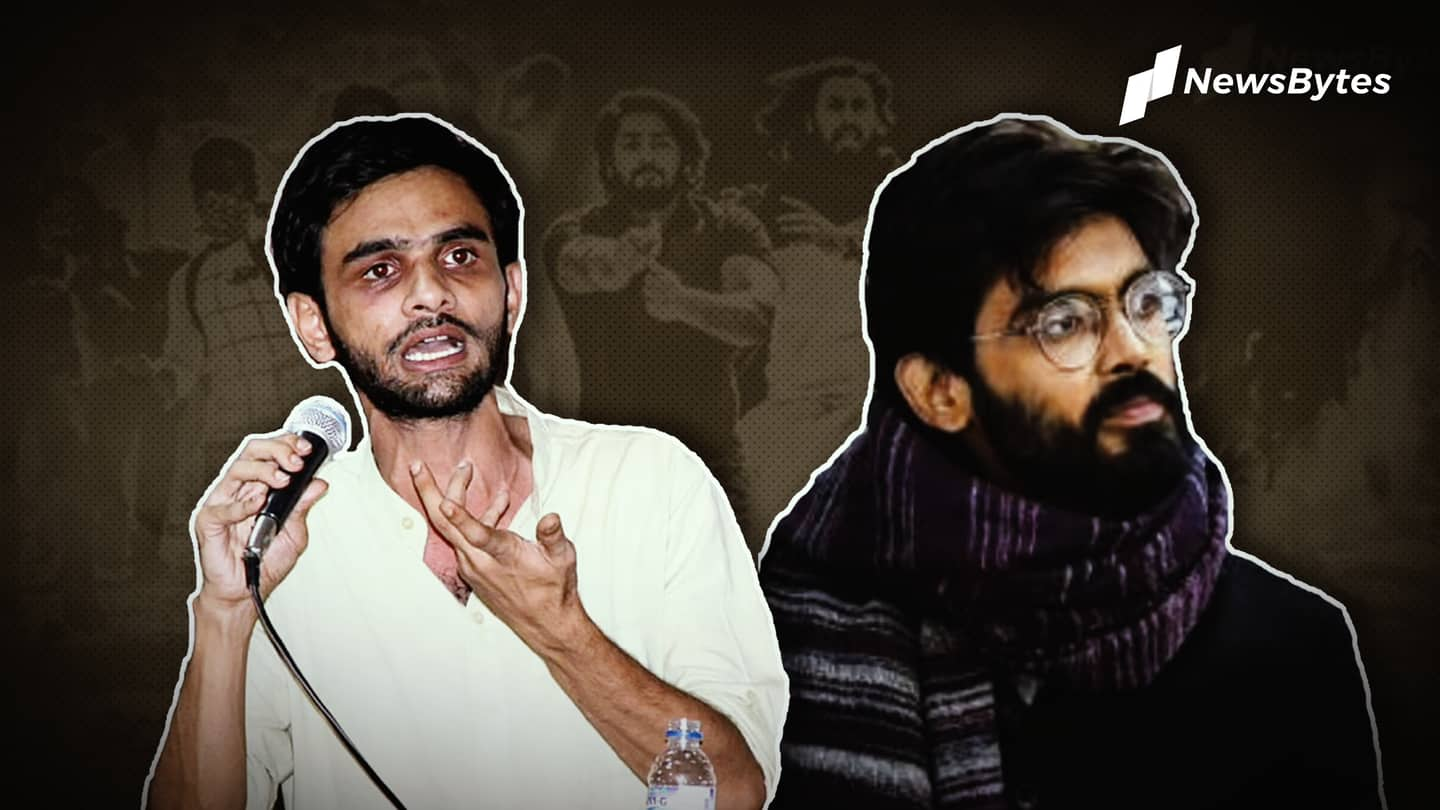
Delhi riots: Sharjeel Imam "fit perfectly" in Umar Khalid's plans
What's the story
In a supplementary charge-sheet filed in connection to the riots in Northeast Delhi, police said former JNU student Umar Khalid exploited the "religious fanaticism" of Sharjeel Imam, another scholar from the prestigious university, for his benefit.
Delhi Police claimed Khalid used his "atheism" as a pretense and actually believed that violent political Islam must be joined with frontal political parties against the Indian state.
Charge-sheet
"Veteran of sedition" accepted India's idea with a grudge
Khalid, who has been referred to as a "veteran of sedition," had accepted the idea of India in 2016 "begrudgingly," alleged the police.
He hatched a plan to split India in 2020 where "all relations were based on the concept of Ummah, with total decimation of secular, national identities," the charge-sheet added.
The ex-JNU student is deeply communal, claimed the police.
Indian Muslims
Khalid knew Indian Muslims would reject Islam's perverted definition
He was also aware that Indian Muslims won't accept the perverted definition of Islam, police stressed.
They said that "Khalid was convergence point of the twin lines of Pan-Islamica and Ultra-Left anarchism which had incubated, nurtured and propagated the common conspiracy, all squarely aimed at violent subjugation of the Government."
Police said the riots were aimed at drawing the world's attention to "anti-minority CAA."
Do you know?
Khalid wanted to "overshadow" the likes of Yogendra Yadav
About Khalid's "mutually reinforcing lines of thought," police said one followed the "template passed on to him in legacy by his father" and another was "the ultra-left ideological space where he was trying to match up, and at times overshadow, the likes of Yogendra Yadav."
Details
"Sharjeel Imam quit Shaheen Bagh protest as part of Maoist-strategy"
About Sharjeel Imam, the police said his oratory skills were to be exploited by the key conspirators of the riots for days.
He distanced himself from the Shaheen Bagh protest as a part of classical Maoist strategy, which allows the movement to remain mass-based while deriving individualism, explained police.
The charge-sheet claimed Khalid had a particular interest in Imam.
Quote
Delhi Police attempted to establish link between Imam, Khalid
"The religious fanaticism of Sharjeel Imam coupled with his academic legacy and sharp rhetorical skills was just the perfect combination that Umar Khalid was looking to exploit to execute the lessons learned from his attempted seditious uprising in JNU in 2016," the charge-sheet added.
Events
Four events, including Babri verdict, unleashed Imam's religious extremism
Further, the police claimed four events turned Imam into a religious extremist.
These are — the move to declare Triple Talaq illegal, Supreme Court's verdict on the Babri Masjid-Ram Temple dispute, abrogation of Article 370, and the introduction of Citizenship Amendment Bill.
Police drew attention to Imam's thesis titled "Exodus before Partition: The attack on Muslims of Bihar in 1946," which dealt with riots.
Jail
Both Imam and Khalid are behind bars
Cops added that some other works of Imam are titled, "The Hindu Republic: Seven decades of Muslim exclusion in India'," "It's time we absolve Jinnah," ''Remembering 1980: Moradabad Muslim massacre: A harsh indictment of 'secular' and left politics," and ''Islamophobia in JNU."
Police also indicated that Imam never actually withdrew from the Shaheen Bagh protest.
Notably, both Khalid and Imam are in jail.
Aftermath
Enough material: Court took cognizance of the supplementary charge-sheet
On Tuesday, the court of Additional Sessions Judge Amitabh Rawat took cognizance of the supplementary charge-sheet.
"After perusal of the charge-sheet and accompanying documents, there is sufficient material to proceed against accused persons," Judge Rawat said in his order.
To recall, the February riots, which rocked the National Capital, took the lives of 53 people and left more than 100 injured.